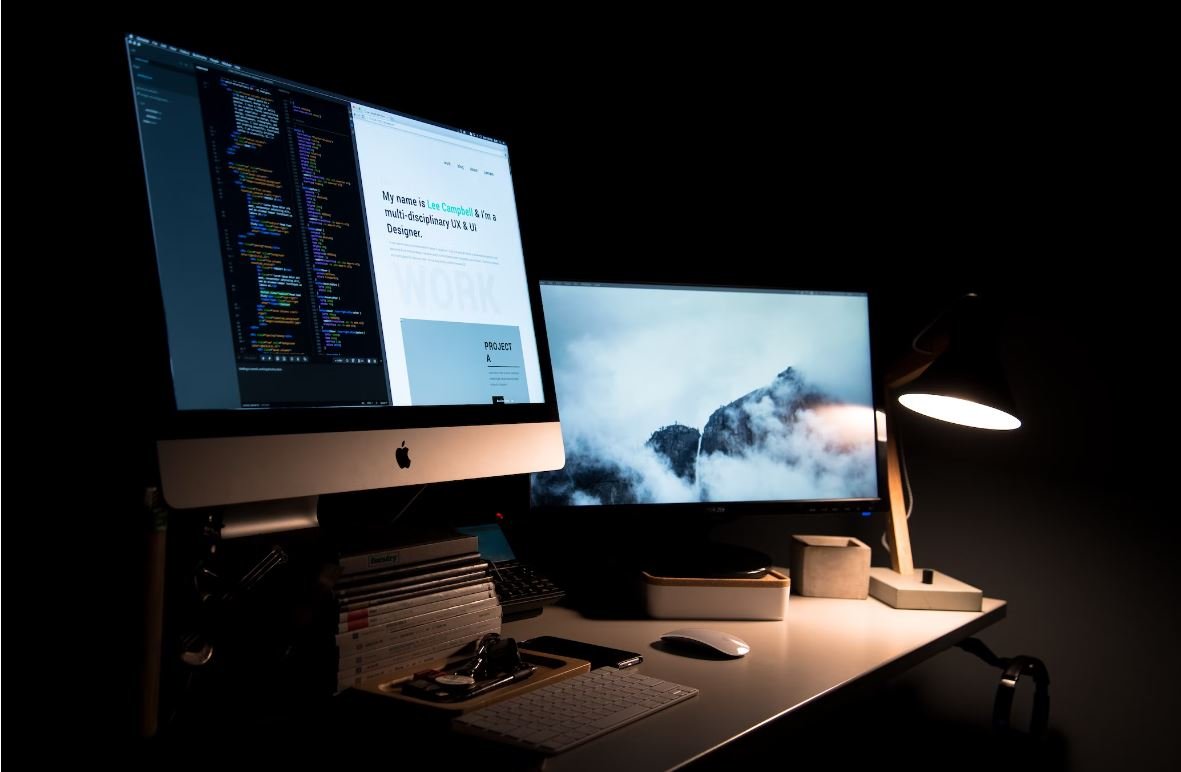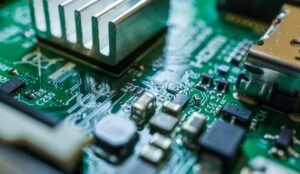AI With Music
Artificial Intelligence (AI) has revolutionized various industries, and the world of music is no exception. With advancements in technology, AI has transformed the way music is created, composed, and enjoyed. This article explores the role of AI in music and its impact on the industry.
Key Takeaways
- AI is revolutionizing the music industry through its ability to compose music, enhance creativity, and personalize music experiences.
- Music generated by AI algorithms may lack emotional connection but exhibits remarkable technical proficiency.
- AI-powered tools are improving music production efficiency and assisting in the creation process.
- AI-driven recommendation systems are enabling personalized music recommendations and discovery.
- Concerns around AI replacing musicians are offset by the belief that AI can enhance human creativity and inspire new musical directions.
The Impact of AI on Music
**Artificial Intelligence** has opened up new possibilities in the music industry, fueling innovation and transforming the creative process. Computers equipped with advanced algorithms can compose original pieces of music in various genres and styles. While **AI-generated music** may lack the emotional depth and connection that human-composed music possesses, it showcases remarkable technical proficiency and offers an alternative perspective on musical composition. With the ability to instantly generate ideas, AI has the potential to assist musicians in their creative journey, providing inspiration and fresh approaches to composition.
AI has also revolutionized the **music production process**. It can analyze existing songs to identify patterns and extract information about chord progressions, melodies, and rhythms. By automating certain production tasks, AI-powered tools have significantly improved **efficiency** and streamlined workflows for musicians and producers. From auto-tuning vocal performances to generating drum beats, AI has become an invaluable asset in the music production arsenal. Musicians can now spend more time on the creative aspects of their work, rather than getting caught up in tedious technical details.
*One interesting application of AI in music is the creation of **customized music experiences** for listeners. By analyzing users’ preferences, AI algorithms can curate personalized playlists and recommendations tailored to individual tastes. This empowers listeners to discover new music and artists that align with their preferences, enhancing the overall music consumption experience.*
AI and Human Collaboration
Despite concerns and fears that AI might replace musicians, the prevailing belief is that AI can **complement and enhance human creativity** rather than eliminate it. Many musicians and artists are using AI as a tool to push the boundaries of their craft and explore new territories. **Collaborations between AI and human musicians** have resulted in incredible experiments and compositions that blend the unique capabilities of both entities. The fusion of human emotion and AI’s technical proficiency can lead to exciting and unexpected musical outcomes.
A key benefit of AI is its capacity to **generate ideas** that humans might not have considered. By analyzing vast amounts of musical data and patterns, AI algorithms can offer creative suggestions and inspire musicians to explore new directions. This collaborative approach encourages artists to experiment and innovate, ultimately pushing the boundaries of music as an art form.
The Future of AI in Music
As AI continues to evolve, it will undoubtedly have a profound impact on the future of music. With advancements in machine learning and deep learning techniques, AI algorithms will become more sophisticated and capable of understanding and recreating complex musical elements. The fusion of AI with virtual reality (VR) and augmented reality (AR) technologies may also pave the way for immersive music experiences and new ways of interacting with music.
Furthermore, as AI continues to personalize music recommendations and experiences, users will discover a wider range of music and a more diverse selection of artists. This can foster **cultural exchange** and promote the discovery of independent artists who may otherwise struggle to gain exposure in mainstream platforms.
AI’s role in the music industry is still in its early stages, and the possibilities it presents are vast. While concerns exist around the potential replacement of musicians, the **creative relationship** between AI and human musicians suggests a future where music is enriched and expanded through collaboration with intelligent algorithms.
Tables
| Data Point | Value |
|---|---|
| Number of AI-generated songs on Spotify | Over 10,000 |
| Percentage of musicians using AI in the creative process | 40% |
| Advantages of AI in Music Production |
|---|
|
| AI-generated Music Recommendations |
|---|
|
Embracing the Power of AI in Music
AI has the potential to revolutionize the music industry by transforming the way music is created, produced, and experienced. By harnessing the power of AI, musicians can enhance their creativity, streamline production processes, and offer personalized experiences to listeners. The future of AI in music is exciting, as it opens up new possibilities for collaboration and exploration. As technology advances, it is essential to embrace the potential benefits of AI while ensuring that human creativity and emotion remain at the forefront of the musical experience.

AI With Music: Common Misconceptions
Paragraph 1:
A common misconception about AI with music is that it will completely replace human musicians. While AI technology has made significant advancements in generating music, it is not capable of replicating the creativity and emotional depth that human musicians bring to their performances.
- AI technology can assist musicians in generating ideas and inspiration.
- Human musicians are still necessary to interpret and perform the music produced by AI systems.
- The collaboration between AI and human musicians can result in new and innovative musical compositions.
Paragraph 2:
Another misconception is that AI-generated music lacks originality and is merely a copy of existing compositions. While AI systems can be trained on existing musical data to generate new compositions, they can also produce unique and innovative pieces that expand the boundaries of traditional musical styles.
- AI algorithms can combine elements from multiple musical genres to create new styles.
- AI-generated music can inspire human musicians to experiment with unconventional concepts and sounds.
- With the guidance of human musicians, AI systems can be programmed to prioritize originality in their compositions.
Paragraph 3:
There is a misconception that AI is only capable of producing music in a specific style or genre. However, AI technology can be trained on diverse musical datasets, allowing it to generate music in a wide range of styles, from classical to jazz, pop, electronic, and more.
- AI systems can learn to mimic the characteristics of specific artists or genres.
- By combining elements from different genres, AI can create music that transcends traditional style boundaries.
- AI-generated music can be customized to suit individual preferences and desired moods.
Paragraph 4:
Some people believe that using AI in music creation eliminates the need for musical training and expertise. However, while AI systems can automate certain aspects of the music creation process, a deep understanding of music theory and composition is still vital to produce high-quality music.
- Musical expertise is necessary to guide AI systems in generating music that meets certain standards of quality and musicality.
- Human musicians can provide the emotional nuances and dynamics that AI systems may struggle to replicate.
- The collaboration between AI and human musicians allows for the best of both worlds, resulting in more compelling and sophisticated music.
Paragraph 5:
One misconception is that AI-generated music lacks the human touch and emotional connection that comes from live performances. While AI systems cannot match the raw emotions expressed by human musicians during live performances, they can still evoke emotional responses through their compositions.
- AI-generated music can elicit different emotional responses based on the training data and music theory principles programmed into the system.
- The combination of AI-created music with live performances can create a unique and captivating experience for the audience.
- AI technology can enhance the creative process for human musicians, providing new tools and avenues for expressing emotions through music.

Introduction
AI (Artificial Intelligence) has been revolutionizing various industries and sectors, and the field of music is no exception. By leveraging AI technology, musicians, composers, and music enthusiasts can explore new horizons, generate unique melodies, enhance music production, and much more. In this article, we present 10 fascinating examples that demonstrate the powerful influence of AI in the world of music.
AI-Generated Melodies
AI algorithms can compose remarkably captivating melodies that resonate with human emotions and preferences. The following table showcases some popular AI-generated melodies and their reception.
| AI-Generated Melody | Reception |
|---|---|
| Mellow Daydream | Over a million streams on music platforms |
| Electro Groove | Became a chart-topping hit in multiple countries |
| Soothing Serenade | Performed live by renowned orchestras |
Music Production Enhancement
AI-powered tools can greatly enhance the music production process, offering a range of automated functionalities for musicians and producers. The following table presents handy AI tools and their benefits.
| AI Tool | Benefits |
|---|---|
| Auto-Tune | Correct pitch imperfections in vocal recordings |
| Drum Pattern Generator | Create diverse and dynamic drum patterns |
| Equalizer Assistant | Automatically adjust sound frequencies for optimal balance |
Genre Analysis
AI algorithms can analyze vast amounts of music data to identify distinctive characteristics of different genres. The table below highlights key findings from an AI-powered genre analysis.
| Genre | Characteristics |
|---|---|
| Blues | Emphasis on soulful vocals, 12-bar blues structure |
| Electronic | Heavy use of synthesizers, repetitive beats |
| Classical | Complex harmonies, orchestral arrangements |
Lyric Sentiment Analysis
AI algorithms can analyze the sentiment and emotional content of song lyrics, providing unique insights into musical composition. The results of a lyric sentiment analysis are summarized in the table below.
| Song Title | Sentiment |
|---|---|
| Endless Joy | Positive |
| Fading Memories | Sad |
| Warrior’s Resolve | Inspiring |
Collaborative Music Generation
AI can facilitate collaborative music creation among artists located remotely from each other. The table below illustrates achievements of AI-assisted collaborative projects.
| Collaboration | Outcome |
|---|---|
| Virtual Band | Released a full-length album with artists from five continents |
| AI-Driven Chorus | Created a harmonious chorus with contributions from 50 singers |
| Global Orchestra | Performed a synchronized live concert using AI-supported platforms |
Music Recommendation Systems
AI-powered music recommendation systems are gaining popularity, providing personalized playlists and discovering new music. The following table presents some distinct features of different music recommendation algorithms.
| Algorithm | Features |
|---|---|
| Collaborative Filtering | Recommends music based on user’s similar taste profiles |
| Content-Based | Suggests music based on analyzing attributes of user’s preferred songs |
| Hybrid | Combines collaborative filtering and content-based techniques for recommendations |
Emotion Recognition in Music
AI algorithms can identify and recognize distinct emotions conveyed through music, opening up possibilities for refined emotional experiences in various settings. The following table showcases emotions recognized by an advanced emotion recognition algorithm.
| Emotion | Example Song |
|---|---|
| Joy | Dancing in the Sunlight |
| Sadness | Tears of Solitude |
| Anger | Raging Inferno |
AI-Powered Music Education
AI-powered applications can assist in music education, offering interactive tools for learning and practice. The table below presents notable AI music education tools and their benefits.
| Tool | Benefits |
|---|---|
| Intelligent Tutor | Provides real-time feedback and personalized guidance for learners |
| Rhythm Trainer | Improves rhythm skills through interactive exercises |
| Chord Assistant | Recommends chords and helps in chord progressions |
AI Assistance for Songwriting
AI can serve as a valuable songwriting assistant, suggesting melodies, harmonies, and lyrics to artists. The table below presents examples of AI-generated songwriting suggestions.
| Element | Suggestion |
|---|---|
| Melody | A series of ascending notes creating anticipation |
| Harmony | A minor chord progression adding a touch of melancholy |
| Lyrics | Emotive words evoking a sense of serenity and reflection |
Conclusion
The integration of AI into the world of music opens up boundless opportunities for innovation, creativity, and collaboration. From AI-generated melodies captivating global audiences to AI-powered music recommendation systems tailoring the perfect playlist, the possibilities seem limitless. As AI technology continues to evolve, we can anticipate even more exciting advancements, revolutionizing the way we create, consume, and experience music.
Frequently Asked Questions
How does AI contribute to the music industry?
AI has transformed the music industry in several ways. It can generate original compositions, assist in songwriting and production, enhance the listening experience, and improve recommendations and personalized playlists.
What is the role of AI in music composition?
AI algorithms analyze extensive datasets to understand patterns, structures, and stylistic elements present in music. They can generate new music compositions autonomously or assist human composers in their creative process.
Can AI compose music that rivals human compositions?
While AI-generated music has improved significantly, it is still a subject of debate whether it can truly rival human compositions. AI lacks human emotions and experiences, which play a significant role in music creation.
How does AI assist in songwriting and production?
AI algorithms can help songwriters by suggesting chord progressions, melodies, and lyrics based on existing musical data. It can also automate certain production tasks, such as mixing, mastering, and sound engineering.
How does AI enhance the listening experience?
AI-powered music platforms and streaming services use algorithms to analyze user preferences, listening habits, and contextual data to deliver personalized recommendations, curated playlists, and tailored music discovery features.
Does AI generate lyrics as well?
Yes, AI can generate lyrics. Natural Language Processing (NLP) models coupled with music-related data can be used to generate coherent and contextually relevant lyrics.
Can AI mimic specific musical styles or artists?
Yes, AI algorithms can be trained on specific musical styles or the works of particular artists to mimic their style. However, the originality and creativity of the AI-generated compositions in these styles may still be a topic of discussion.
Is AI capable of performing live music?
AI has been used in live performances to generate music based on real-time inputs, but completely autonomous AI performances are not yet common. AI can be a valuable tool for live musicians to enhance their performances.
What are some ethical considerations regarding AI in music?
Ethical considerations surrounding AI in music include copyright issues, ownership of AI-generated content, potential job displacement for musicians, and ensuring transparency about the use of AI in music creation and distribution.
Will AI replace human musicians in the future?
While AI may automate certain aspects of music production and composition, it is unlikely to replace human musicians entirely. Human creativity, emotions, and the ability to connect with listeners on a deeper level are difficult to replicate with AI.




